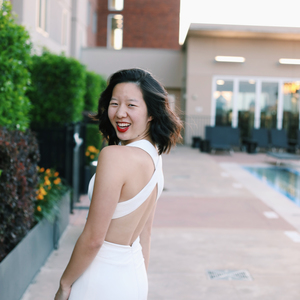Two weeks ago, the highly anticipated Incredibles 2 was released. Many raced to the theaters, after all, the original Incredibles movie had always retained a special place in their hearts as a childhood favorite.
I still remember watching the Incredibles countless times as a child, and every time I was entranced by all the action-packed scenes and wondrous details. So just like all the other Millennials and Gen-Zers, the Incredibles 2 was a big deal for me.
However, as an Asian American woman, Bao, the heart-wrenching short that preceded the Incredibles 2, was even more remarkable. Domee Shi is the director of the new Pixar short about a Chinese immigrant mother who raises a bun (or “bao” in Chinese) as her own child. Not only is Shi the first female director of a Pixar short, she has also created a short that encapsulates the experience of the children of immigrants.
How so?
What is particularly important about this short is that it not only attempts to relate the experiences of a cultural identity, it actually keeps the details culturally accurate. Shi even brought her mother in on two occasions to teach her entire crew how to make dumplings, as she believes that it was “really important for the animators and effects artists and everyone on the crew to kind of see every single step that it took for her to make those dumplings, so we could record her actions and replicate them on the big screen as accurately as possible.” That attention to detail is the very reason the graphics are so compelling.
While Domee Shi is a name that you might not recognize, she started at Pixar as an intern a few years back and had the opportunity to work on animated movies such as A Good Dinosaur and Inside Out.
Now Shi is gaining recognition as the film continues to touch those who encounter it. For me, the excitement of Bao is not simply the great animation and compelling story, it’s also the culture and progress its existence speaks to.
Many aspects of the short resonated with me. I grew up Asian American in Houston, Texas and for me, it was at times difficult to reconcile my two identities. I’ve spoken to many of my other Asian American friends, and it’s a common narrative- as a child you resent that your Chinese heritage keeps you from fitting in with everyone else. You learn to cast that portion of who you are away and attempt to make your American identity the larger descriptor. But as you grow up, you gain a new appreciation of your cultural heritage and want to learn and embrace that side just as much as your American side. That’s not every Asian American experience, but it’s mine and the experience of many others.
Shi artfully encapsulated that experience and put it on the big screen. The significance here is that giving a cultural narrative that kind of exposure allows young Asian American children to see themselves and their narrative in a way that both normalizes it and gives them something to relate to. She pulled little details from her own upbringing and brought it into the short. “The mom’s whole house is populated with these specific little props every Asian person can probably recognize: The rice cooker in the back of the dining room, the cheesy grocery store calendar that you get from a Chinese supermarket, the lucky cat on the shelf, the tinfoil covering the drip pans on the burners in the kitchen,” Shi says in an interview with TIME Magazine.
There is also the added gravity of Shi being the first female director of a Pixar short. In 35 years, no woman has been given that title. Giving such visibility to women who are making a difference allows girls to envision themselves in those same roles.
According to Shi, “Something like 75% enrollment in animation schools is now female. That’s going to create a shift in the industry. I feel like Bao coming out is a signal of change—that such a big studio has gotten behind such a culturally-specific short led predominantly by women.”
All in all, I am both impressed and moved by Bao. Not only is it a beautiful tale of growing up that all parents and children can relate to, it’s also a reflection of the Asian American experience.


